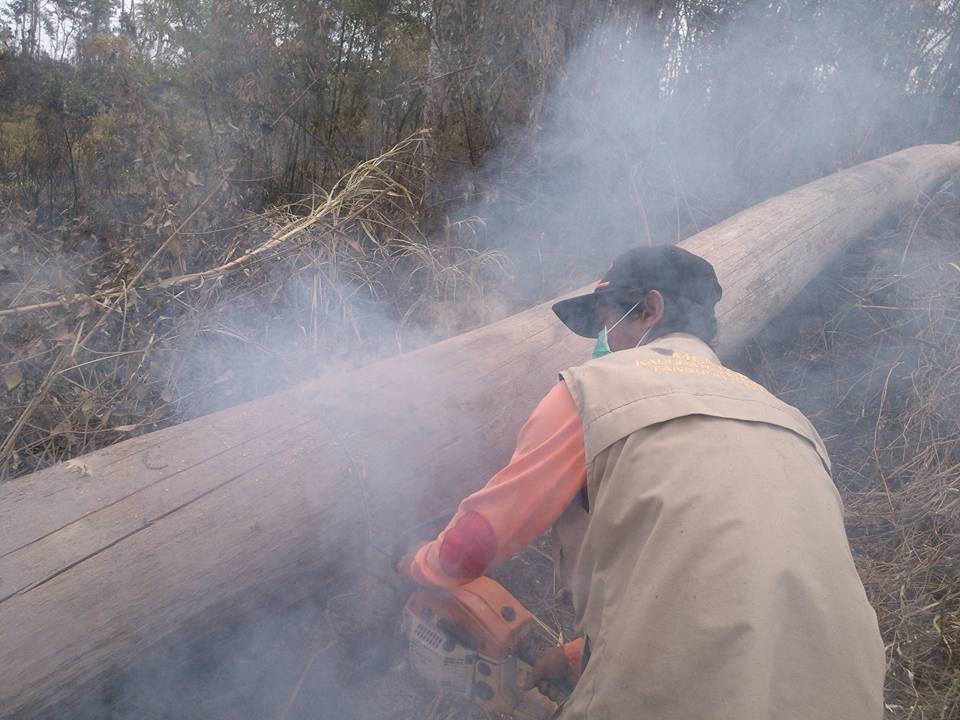- Indonesia’s meteorology agency, the BMKG, forecast rain over large parts of Indonesia on Wednesday but data at 6 a.m. showed a spike in hotspots to 200.
- Indonesian media reported on Wednesday that a one-year-old girl had died in Palembang from respiratory disease.
- Singapore foreign minister Vivian Balakrishnan: “This is a classic example of privatizing the gain and socializing the pain.”
The government of Singapore on Wednesday issued its strongest comments yet over the Southeast Asia haze crisis, as conditions began to worsen in parts of Indonesia following improved air quality over the past week.
“This is a classic example of privatizing the gain and socializing the pain,” Singapore foreign minister Vivian Balakrishnan said.
Indonesia’s meteorology agency, the BMKG, forecast rain over large parts of Indonesia on Wednesday but data at 6 a.m. showed a spike in hotspots to 200. The higher number followed a reading of just seven on Tuesday.
“It would be bad enough if this was a natural disaster,” Balakrishnan said. “We would all shake our heads, huddle together, reach out, help one another. But this is not a natural disaster.”
“It has impaired the health of millions of people, compromised the safety of aircraft, and damaged our regional economy.”
A Singapore government press release emphasized that Indonesia had declined to provide detailed information on the companies it suspected of involvement in this year’s fires. Several retailers in Singapore have removed products supplied by companies named under the republic’s transboundary pollution laws.
“These may be symbolic,” Balakrishnan said, referring to Singapore retailers moving to clean up their supply chains. “It may not cost the companies a lot of money at this point in time, but I think it sends a very clear signal that enough is enough, and that people are going to vote with their wallets and their feet.”

The Straits Times writes an analysis on Wednesday looking at one those companies, Asia Pulp & Paper. The company says fires are started by factors beyond its control and it has released maps of all its concession, a level of transparency other companies have yet to reach.
In Jakarta, President Joko “Jokowi” Widodo met with the president of Finland to discuss peatland management practices. Around 30% of Finland’s surface is peat, which contributes around 6% to the country’s energy supply.
“Peat is not only our problem,” said Indonesia’s state secretary, Pratikno. “Many other countries have succeeded and we have to succeed as well. The president is serious about dealing with this.”

The Wall Street Journal reports on the impact of this year’s El Niño on agribusinesses’ yields this year.
“Historically, El Niño events have an impact of anywhere between 4% to 20% on crop yields,” Cargill Tropical Palm Holdings chief executive John Hartmann told the paper.
Wildfires in Java continue to pose problems for the disaster management agency and volunteer firefighters. Indonesia’s environment ministry announced that Mount Merapi, a volcano on Java island near the city of Yogyakarta, would be closed to hikers until November 30 because of the threat of fires.
Indonesian media reported on Wednesday that a one-year-old girl had died in Palembang from respiratory disease. Newspaper Kompas reports on children returning to school in Palangkaraya, where haze forced schools to close for 34 days since the crisis began.













